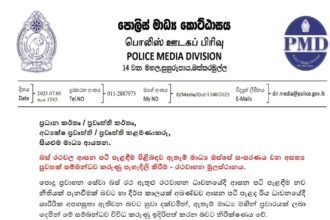A drug used to treat a rare inherited disease has been found to make human blood toxic to malaria-carrying mosquitoes. It could provide another tool to reduce deadly insect populations.
Mosquitoes are considered the deadliest animal on the planet — carrying diseases that kill more than one million people a year.
Scientists have found that a drug called nitisinone, which is used to treat people with a rare inherited disease called tyrosinemia, makes human blood toxic to mosquitoes.
Although it doesn’t prevent the transmission of the malaria parasite Plasmodium, nitisinone is now being considered for further field tests as a chemical control to reduce the number of insects capable of spreading the disease.
What is the mosquito-killing drug?
Nitisinone is used to treat hereditary tyrosinemia type 1, which is a disease where people have too much tyrosine in their blood.
Lab tests found that when a mosquito bites someone who’s been taking nitisinone, the presence of the drug prevents the insect from being able to digest the human “blood meal” — 24 hours later, the insect dies. Nitisinone is toxic to mosquitoes in a way that it isn’t to humans.
Compared to ivermectin, another chemical that has been investigated as a mosquito vector control, nitisinone lasts longer in the bloodstream.
It’s also versatile, as it can be vaporized and sprayed on surfaces, meaning it can act like an insecticide.
An insecticide in your blood?
While field tests are required to ensure the drug is effective in malaria-prone areas, the early findings suggest it could be promising as a cheap and effective agent to control mosquito numbers.
Importantly, it appears effective against mosquito species that have developed resistance to other control chemicals.
“It kills insecticide-resistant mosquitoes. There are a few insecticides that have been used in the field for decades [but] there are resistant [mosquito] lines in the community,” said Alvaro Acosta-Serrano, the joint supervisor of the study, based at Notre Dame University, US.
“We tested those resistant lines with nitisinone and they are almost as equally susceptible as the susceptible lines of mosquitoes. It brings a lot of benefits, not only to mention that it performs better than ivermectin.”
Anna Last, an associate professor in infectious diseases at the London School of Hygiene and Tropical Medicine, who wasn’t involved in the study, said the findings were promising, particularly given results from recent field tests of ivermectin in vulnerable communities in Africa.
“It’s a very relevant piece of work, I think, and does follow on from the slightly disappointing results from the majority of field trials looking at ivermectin, which showed that it didn’t perform in the way that we had anticipated and hoped, in the field,” Last told DW. (DW)
The post A new drug makes your blood toxic to mosquitoes appeared first on Newswire.



